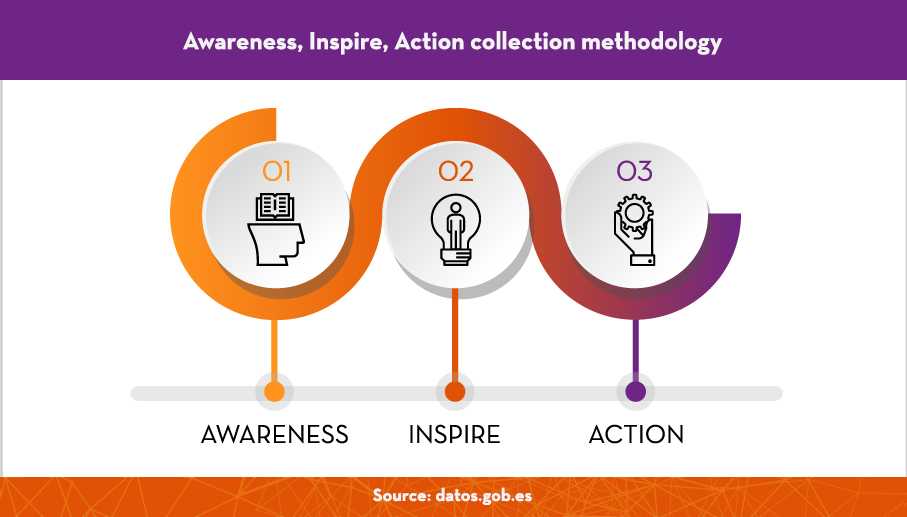OpenEuroLLM: a European open source AI language models project
Fecha de la noticia: 11-03-2025

There is no doubt that artificial intelligence has become a fundamental pillar of technological innovation. Today, artificial intelligence (AI) can create chatbots specialised in open data, applications that facilitate professional work and even a digital Earth model to anticipate natural disasters.
The possibilities are endless, however, the future of AI also has challenges to overcome to make models more inclusive, accessible and transparent. In this respect, the European Union is developing various initiatives to make progress in this field.
European regulatory framework for a more open and transparent AI.
The EU's approach to AI seeks to give citizens the confidence to adopt these technologies and to encourage businesses to develop them. To this end, the European AI Regulation sets out guidelines for the development of artificial intelligence in line with European values of privacy, security and cultural diversity. On the other hand, the Data Governance Regulation (DGA) defines that broad access to data must be guaranteed without compromising intellectual property rights, privacy and fairness.
Together with the Artificial Intelligence Act, the update of the Coordinated Plan on AI ensures the security and fundamental rights of individuals and businesses, while strengthening investment and innovation in all EU countries. The Commission has also launched an Artificial Intelligence Innovation Package to help European start-ups and SMEs develop reliable AI that respects EU values and standards.
Other institutions are also working on boosting intelligence by pushing open source AI models as a very interesting solution. A recent report by Open Future and Open Source Initiative (OSI) defines what data governance should look like in open source AI models. One of the challenges highlighted in the report is precisely to strike a balance between open data and data rights, to achieve more transparency and to avoid cultural bias. In fact, experts in the field Ricard Martínez and Carmen Torrijos debated this issue in the pódcast of datos.gob.es.
The OpenEuroLLM project
With the aim of solving potential challenges and as an innovative and open solution, the European Union, through the Digital Europe programme has presented through this open source artificial intelligence project it is expected to create efficient, transparent language models aligned with European AI regulations.
The OpenEuroLLM project has as its main goal the development of state-of-the-art language models for a wide variety of public and private applications. Among the most important objectives, we can mention the following:
- Extend the multilingual capabilities of existing models: this includes not only the official languages of the European Union, but also other languages that are of social and economic interest. Europe is a continent rich in linguistic diversity, and the project seeks to reflect this diversity in AI models.
- Sustainable access to fundamental models: lthe models developed within the project will be easy to access and ready to be adjusted to various applications. This will not only benefit large enterprises, but also small and medium-sized enterprises (SMEs) that wish to integrate AI into their processes without facing technological barriers.
- Evaluation of results and alignment with European regulations: models will be evaluated according to rigorous safety standards and alignment with the European AI Regulation and other European regulatory frameworks. This will ensure that AI solutions are safe and respect fundamental rights.
- Transparency and accessibility: One of the premises of the project is to openly share the tools, processes and intermediate results of the training processes. This will allow other researchers and developers to reproduce, improve and adapt the models for their own purposes.
- Community building: OpenEuroLLM is not limited to modelling but also aims to build an active and engaged community, both in the public and private sector, that can collaborate, share knowledge and work together to advance AI research.
The OpenEuroLLM Consortium: a collaborative and multinational project
The OpenEuroLLM project is being developed by a consortium of 20 European research institutions , technology companies and supercomputing centres, under the coordination of Charles University (Czech Republic) and the collaboration of Silo GenAI (Finland). The consortium brings together some of the leading institutions and companies in the field of artificial intelligence in Europe, creating a multinational collaboration to develop open source language models.
The main institutions participating in the project include renowned universities such as University of Helsinki (Finland) and University of Oslo (Norway), as well as technology companies such as Aleph Alpha Research (Germany) or the company from Elche prompsit (Spain), among others. In addition, supercomputing centres such as the Barcelona Supercomputing Center (Spain) or SURF (The Netherlands) provide the infrastructure needed to train large-scale models.
Linguistic diversity, transparency and compliance with EU standards
One of the biggest challenges of globalised artificial intelligence is the inclusion of multiple languages and the preservation of cultural differences. Europe, with its vast linguistic diversity, presents a unique environment in which to address these issues. OpenEuroLLM is committed to preserving this diversity and ensuring that the AI models developed are sensitive to the linguistic and cultural variations of the region.
As we saw at the beginning of this post, technological development must go hand in hand with ethical and responsible values. In this respect, one of the key features of the OpenEuroLLM project is its focus on transparency. Models, data, documentation, training code and evaluation metrics will be fully available to the public. This will allow researchers and developers to audit, modify and improve the models, ensuring an open and collaborative approach.
In addition, the project is aligned with strict European AI regulations. OpenEuroLLM is designed to comply with the EU's AI Law , which sets stringent criteria to ensure safety, fairness and privacy in artificial intelligence systems.
Democratising access to AI
One of the most important achievements of OpenEuroLLLM is the democratisation of access to high-performance AI. Open source models will enable businesses, academic institutions and public sector organisations across Europe to have access to cutting-edge technology, regardless of their size or budget.
This is especially relevant for small and medium-sized enterprises (SMEs), which often face difficulties in accessing AI solutions due to high licensing costs or technological barriers. OpenEuroLLM will remove these barriers and enable companies to develop innovative products and services using AI, which will contribute to Europe's economic growth.
The OpenEuroLLM project is also an EU commitment to digital sovereignty that is strategically investing in the development of technological infrastructure that reduces dependence on global players and strengthens European competitiveness in the field of artificial intelligence. This is an important step towards artificial intelligence that is not only more advanced, but also fairer, safer and more responsible.














